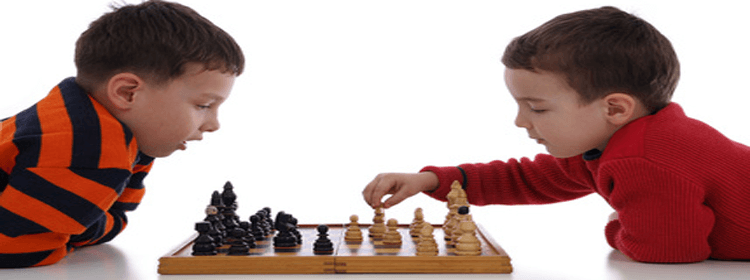How early should children start playing chess? How early should children start studying chess? How early should children start using chess databases? Everything at once? Little by little? Or it will depend on the answer to the first question? I believe chess playing parents might be interested in this discussion. Curious children may read it too. Ideally, parents and kids: discuss this topic together and we will wait for the next young geniuses!
I am not a psychologist; therefore, I will discuss this topic as a chess player. Nevertheless, psychology play its role. One can remember Erikson's stages of psychosocial development to approach these questions, and it makes all the sense. Some days ago, we discussed the early age players achieve the GM title. To start earlier may help in this quest. Some of the youngest GM titled players started playing chess very early, like 5 years old (Magnus Carlsen and Sergey Karjakin, for example) or even before (like Judit Polgár). These are called chess prodigies. Nevertheless, while some of these prodigies can quickly become titled chess players, some others may not improve in the same way towards adulthood. If the first are widely noticed by the media, the latter are doomed to oblivion. Quoting the German philosopher Friedrich Nietzsche, “Only strong personalities can endure history, the weak ones are extinguished by it”. Well, how strong can be a personality at childhood? What if the history extinguished chess prodigies started playing chess a few years later? If there is an answer, we may never know...
First, it may depend on the child. Or it must depend on the child? If your kid wants to play chess, even in a very early age, why not? Would you prevent him/her just because he/she is, let's say, 3 years old? Probably, this may be the first sign age is not so relevant: the child interest. Let them start when they want to. But, please, don't expect him/her to learn how to move all the pieces in the first day. If he/she does accomplish it, however, we will be glad to know it: the youngest GMs list is never completed!
Second, it may depend on the parents. Or it must depend on the parents? Yes, this is always a good question: “force” the kid to or “allow” the kid to? Obviously, if parents introduce a child to chess and he/she becomes instantly interested then it's a perfect match! I'm wondering if this is common... However, if parents show their children that beautiful and shinny chess board and pieces and he/she doesn't even give a look: how disappointing! Should you try again later? Maybe once more, twice, … If the interest can't be disclosed by the attentive parents, maybe you can give him/her a ball and a sports kit next Christmas? Chess is not the only interesting activity to children. And if you, parents, are really interested in intellectual development of your children there are other board games (checkers, backgammon, go, …) and you can also consider music, dance or drawing. Or just spend a nice time with your kids: nature walking, watching a movie together, devouring sweets; in other words, playing together, whatever the game is!
Third, it may depend on the preschool. Or it must depend on the preschool? Although the advantages of having one or both parents at home taking care of their children are being rediscovered, commonly kids go to preschool (considering children 6 years old or younger). And there, it may be an interesting activity. While at home it may be an activity to develop only with one or both parents, at preschool it will be a group activity with their peers. And yes, my competitive look of chess loves this idea: competition since a very early age!
To conclude, if we have small humans why not to offer them small chess? Ladies and gentlemen, please welcome minichess! “What?” - some of you may ask. Minichess is played with the same pieces and rules as common chess but with smaller boards. The chess board size may vary from 3x3 to 6x6 (including the non-square boards 3x4, 4x5, 4x8 and 5x6) (columns x rows). Given mastering the pieces' movement is one of the first steps in our chess lives, these Lilliputian chess variants may be an easier, and very funny!, start. And you, what do you think, which is the right age to start playing chess?
Porto, 8-10-2015
Paulo de Morais
